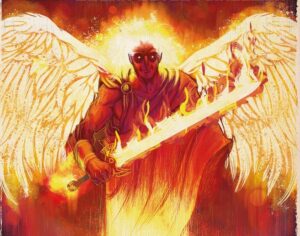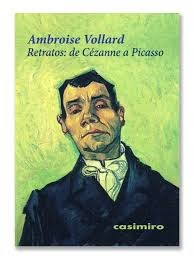
Idioma original: castellano
Year of publication: 1995
Valuation: Highly recommended
A curious character, this Thomas Edward Lawrence, a scholar of the Crusades and an archaeology enthusiast, a soldier who ended up mixed up, somewhat by chance, in the Arab rebellion against the Ottoman Empire, instigated in turn by the British in the context of the First World War. It is also curious, and I find it gratifying because of its unusual nature, that a Spanish poet and essayist has devoted his attention to an individual so far removed from the history of the country. Good job Jose Maria Alvarez.
that it would be good for us to look a little beyond our borders. Álvarez places us without prelude on the ship Rajputana in which Lawrence is taken against his will back to England, involved in a dark episode of espionage. And there, in a filthy hold, he writes the memoirs that make up the story. We could say that we are faced with a free, very personal and quite raw version ofThe Seven Pillars of Wisdom
which Lawrence actually wrote about his spectacular experience. Álvarez dares, and shows a very estimable courage, to get into character and connect with his conscience, that of an indomitable and contradictory guy, eager for experiences and fascinated by the greatness of the Arab warriors. The explosive personality of the Welsh soldier overflows on each page, saturates the story with sincerity and grants it the same degree of intensity in glory as in sorrow and disappointment. Obviously I cannot assess to what extent the author is fantasizing or is adjusting to reality, but the feeling he transmits is totally convincing. And it seems to be, obviously I cannot affirm it either, that there is a certain dose of the author’s personal experiences that are reflected in the protagonist of the story.
As I said before, and I think it is sufficiently known, Lawrence enlists in the British army and, due to his knowledge of the geographical environment, is assigned to contact the Arab leaders who rebelled against Turkish rule. He ends up becoming one of the leaders of the struggle, perfectly identified with the local chieftains. But, in view of the book, the personal side of the Welshman is even more fascinating, an extremely intense guy, we might say inflamed, not so much in the patriotic aspect as in the experience of heroism, integrity and the glorious aura with which he considers the insurgent Arabs to be invested. Lawrence is always aware that they will be betrayed by the secret pacts previously signed between the English and the French, and this unnerves him, although it does not prevent him from moving forward.
He is at the same time a ruthless individual, who abhors mediocrity and egalitarianism (democracy) which he considers castrating, to the point of being courted later by a certain British fascist Party. But he is also a highly cultured man, who never separates himself from his favourite books, translates Homer from classical Greek and masters Arabic poetry, among many other things. And there we can also see an enormously complex personality, in which a strange asexuality seems to combine with the embers of a traditional romantic love, fleeting homosexual experiences and a certain tendency towards something that we could describe as sado. Jose María Álvarez does not spare details that illustrate these contradictions, on the contrary, he is explicit and of a considerable crudeness that makes us doubt whether, when this title was published in a historical collection of Planeta, anyone in the house actually read it.
Perhaps not, perhaps they had stuck with the rather sugar-coated image of Peter O’Toole in the famous 1962 film, a much more friendly and closer version of the western hero and liberator that the consumer could easily assimilate and generate good cash. This legendary Lawrence was apparently an invention of the journalist Lowell Thomas, who transformed him into an artificial figure that the protagonist hated to death. He never forgave the propagation of this image of righteousness and heroism that he knew was not real, nor could he bear the popularity it provoked, so he preferred to hide in an anonymous role in the RAF or in a distant post in Pakistan.
As fate would have it, I just found out that Jose Maria Alvarez passed away last week. From what I have seen, his value as a poet may not have been sufficiently recognized, but in any case, in the review of this book we offer our modest tribute.
Source: https://unlibroaldia.blogspot.com/2024/07/jose-maria-alvarez-lawrence-de-arabia.html


